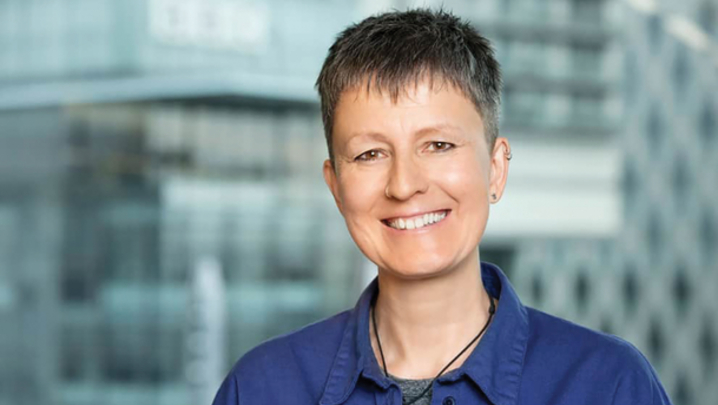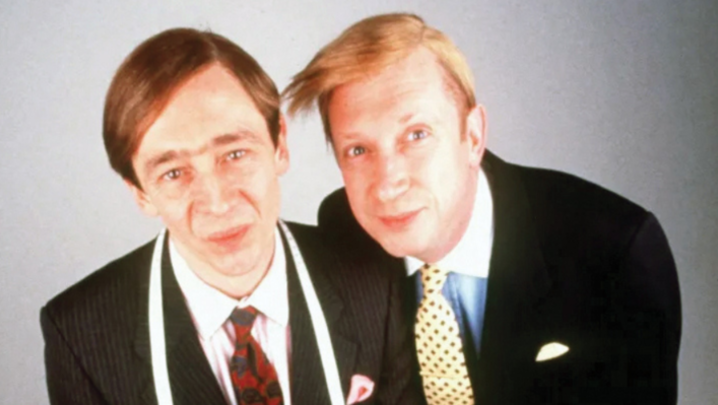Carole Solazzo discovers how life-affirming BBC Three film Stranger in My Family was developed and made
“From the moment I got the results… I had a lot of questions I didn’t know what to do with. I thought… if I put it all into the structure of a film... then I could make sense of it.… Films have always saved me.” This was RTS Futures Award nominee Luke Davies, co-producer and subject of BBC Three’s life-affirming documentary Stranger in My Family.
Those results were from Davies’s DNA test. His journey to redefine his identity, uncovering two key, long-buried secrets that would turn his and his extended family’s worlds upside-down, was documented over the next four years.
As an ordinary boy, growing up white in Rochdale, Davies expected the nagging feeling that he was different to go away, once he realised he was gay. It didn’t.
It wasn’t until a quip about box-ticking by his manager – “Tick working-class, tick gay,” Davies says in the film, “and then she said: ‘Tick mixed race’” – that the penny dropped.
To Davies’s shock, the results showed he had Portuguese and west African DNA. So, based on Davies’s mother’s sketchy memories of her holiday romance in 1990s Portugal, he began an apparently impossible search, full of twists and turns, for his biological father – an Albufeira bartender called Carlos, surname unknown.
At a young directors’ conference, Davies met Tamar Mankassarian, herself of mixed heritage – “Lebanese, Armenian, Canadian, a mishmash”. She told the capacity RTS audience: “We didn’t know where [the film] was going… but we knew the sentiment we wanted, and that we wanted people to connect with Luke’s story”.
Enter documentary story consultant Nic Guttridge. “It was clear from the first chat that this could be a very interesting film,” he said. “There was a very clear narrative journey, the stakes were high, the potential for emotion was built in.”
He continued: “One of the big obstacles we had was… how do we make it something people will invest in… when the idea of finding Carlos was obviously ludicrous?”
Guttridge became more involved than expected. “My partner is mixed race, my son was one year old…” and he realised that, “as a father… I might not be able to guide my son… through life with my experiences, because… people of colour grow up being treated by the world in a different way to me.
“There are so many parents and children out there who will find something to identify with in this film.”
Guttridge approached RTS Award-winning shooter-director Sunny Kang, who “leapt at the opportunity to mentor a new director [Mankassarian]”.
Input from Guttridge and Kang helped Davies and Mankassarian win the BBC Three Northern Docs Pitch competition, and a commission from Fran Baker, the first BBC Documentaries commissioning editor to be based in the North.
“That universal question, ‘Who am I?’ is always going to be relevant to BBC Three,” Baker said, “And [Davies’s] story taps into that.”
When co-executive producer Cat Lewis and her Manchester production company, Nine Lives Media, came aboard, Lewis encountered huge challenges.
“The bravest decision was after Christmas… to tell Sunny: ‘We’re going to put the filming on hold’,” she recalled, “because [forensic genealogist] Dr Ângela Campos [working with genetic genealogist Laura House who filled in some of the blanks]… was confident that, given time, she could track down the right people.”
Meanwhile, Davies and his family had benefited from the process itself: “There were fruitful conversations that we wouldn’t have had, if we hadn’t been filming.”
Guttridge concluded: “This film has literally changed people’s lives, and for the better.”
The event was held at the Everyman Manchester on 9 September, hosted by Ben Hunte, Global Correspondent for Vice News, and produced by RTS North West in association with Beautiful Productions and Nine Lives Media.







